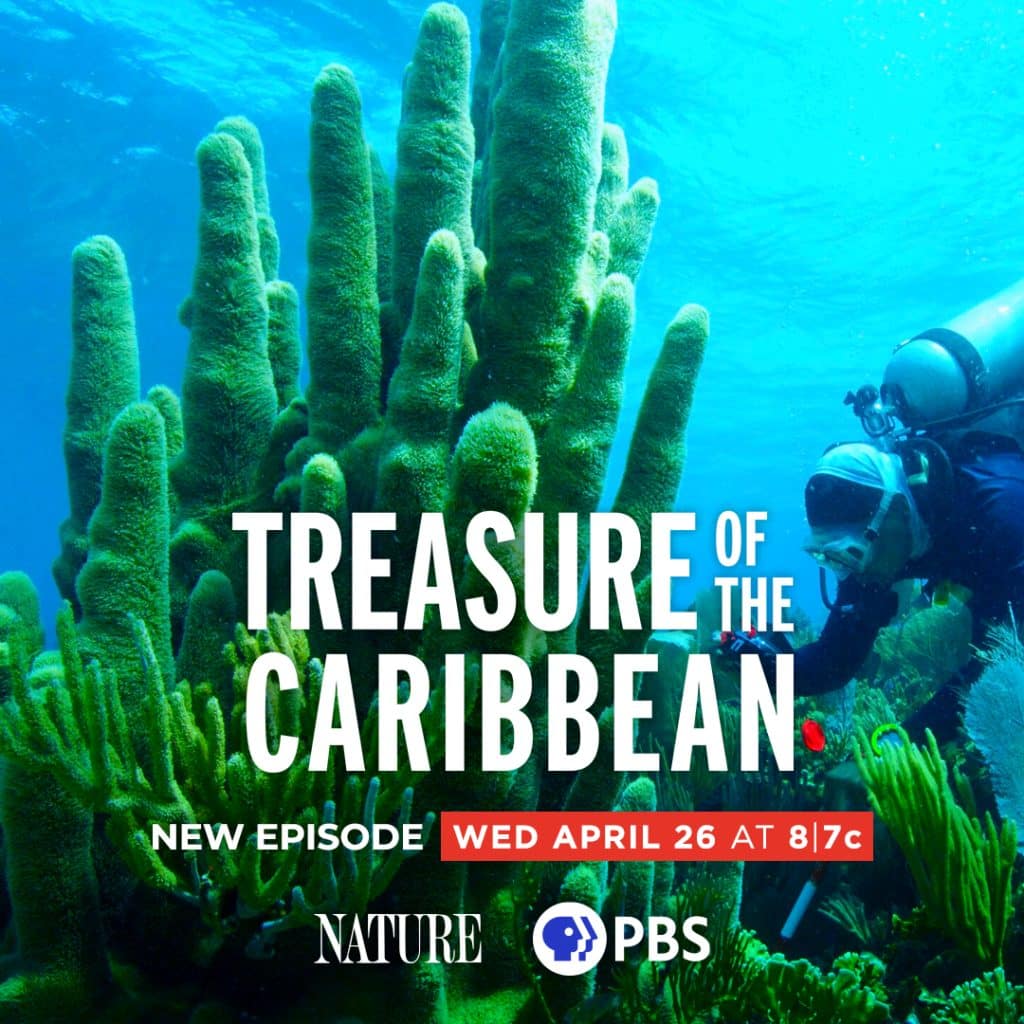The year is 2013. In the waters of Belize and Guatemala, a desperate fisherman takes his small boat into the open ocean in search of fish. Encountering engine trouble, he peers over the side of his boat and can’t believe his eyes. Below is an uncharted, massive crown of rocks and corals, teeming with life.
Experience this natural wonder for the first time in Nature: Treasure of the Caribbean, premiering nationwide Wednesday, April 26 at 8/7c on PBS (check local listings) and streaming online for free at PBS.org/Nature and the PBS app.

Dubbed “The Cayman Crown,” this secret coral garden that surpasses the size of Manhattan is a refuge for a vast array of underwater life, from schools of yellow jack and blue tang to bottlenose dolphins to the critically endangered – and commercially important – Nassau grouper. Up to one-third of the globe’s coral has been lost in the past few years. While not wholly immune to the dangers that face other reefs, such as overfishing, bleaching and invasive species, this reef’s remarkable resilience is likely due to its position on the edge of the Cayman Trench. Cold currents rising from the depths sweep nutrients up to the reef and cool the corals. Additionally, the reef has an abundance of slow-growing corals that can withstand warming waters and fast-growing corals that can proliferate like weeds after bleaching events.
The Cayman Crown was given protected status in 2020 by Belize and Guatemala, but there is still much to be done to ensure its conservation. In Treasure of the Caribbean, hear from scientists and fishermen who worked together to research this reef for nearly a decade before revealing its existence to the public. From mapping the reef and cataloging its inhabitants; to pioneering new ways to use underwater acoustics to discern how fish rely on sound; to experimenting with new approaches to protect breeding fishes, their insights give hope for future reef conservation.



